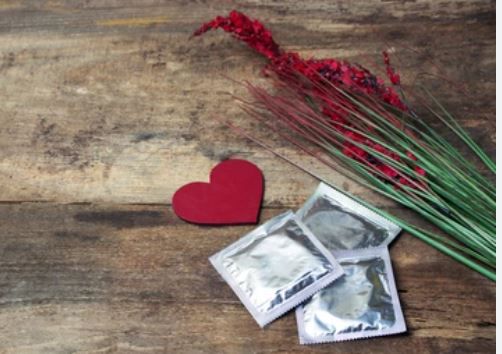
Valentine’s Day is often seen as a day for romance, intimacy, and unforgettable moments. But sometimes, amid the excitement, things might not go as planned, and you may find yourself having unprotected sex. While it’s a common situation that many people face, it’s also one that can bring up concerns about pregnancy or sexually transmitted infections (STIs). If you’ve had unprotected sex, don’t panic. There are clear, practical steps you can take to protect your health and manage the situation.
Whether it’s seeking emergency contraception, getting tested for STIs, or simply knowing what to expect, here’s what you need to do if you find yourself in this situation.
Read also: 8 reasons why you and your partner should normalise having morning sex
1. Assess Your Risks
The first step is to understand the risks you may face after unprotected sex. These can include:
Pregnancy: Unprotected sex can lead to an unintended pregnancy, especially if it occurs during your partner’s fertile window.
STIs: Without protection, there’s a higher risk of contracting or transmitting sexually transmitted infections, such as chlamydia, gonorrhoea, HIV, or herpes. Understanding these risks will help you decide what actions to take next.
2. Consider Emergency Contraception
If pregnancy is a concern, emergency contraception can reduce the likelihood of pregnancy if taken soon after unprotected sex. Emergency contraception is most effective when used as soon as possible, but some options can still be helpful up to 72 hours (or even 5 days) after the event.
Levonorgestrel (Plan B): This is available over the counter in pharmacies and works best within 72 hours of unprotected sex.
Ulipristal acetate (ellaOne): A prescription-only option that can be effective up to 5 days after unprotected sex.
Copper IUD: A copper intrauterine device can be inserted by a healthcare professional up to 5 days after intercourse and serves as both emergency contraception and long-term birth control.
Related article: Unprotected sex? Here are 3 health risks you should know, remedies
If you’re unsure about which option is right for you, seek guidance from a healthcare professional as soon as possible.
3. Get Tested for STIs
If you’ve had unprotected sex, it’s a good idea to get tested for STIs. Even if you or your partner don’t show any symptoms, many infections can be asymptomatic, meaning they don’t cause immediate noticeable signs.
Chlamydia, gonorrhoea, syphilis, and HIV are some of the most common STIs that can be transmitted during are some of the most common STIs that can be transmitted during unprotected sex.
Herpes and hepatitis are also risks, especially if you or your partner have open sores or other symptoms.
Testing is straightforward, and many clinics offer confidential services. It’s always better to be safe and get checked, as early detection can prevent serious complications.
4. Take a Pregnancy Test
If you didn’t use emergency contraception and are concerned about pregnancy, it’s essential to monitor your menstrual cycle. Pregnancy tests can be taken at home, typically around the time your period is due. However, some tests claim to be accurate earlier than that, though waiting until a missed period can give you the most reliable result. If you test positive, contact a healthcare provider to discuss your options and next steps.
5. Consult Your Doctor for Guidance
Whether you’ve taken emergency contraception or are simply unsure about your options, it’s always worth consulting with your doctor or a healthcare professional. They can help you understand your next steps, whether it’s getting a pregnancy test, discussing contraception options, or advising you on STI prevention and testing.
6. Reflect on Your Contraceptive Options
Unprotected sex is a good reminder to reflect on your contraceptive choices moving forward. There are various methods of contraception that can help prevent unintended pregnancies and reduce the risk of STIs, including: Contraceptive pills, patches, or injections, implants or the contraceptive ring, condoms and IUDs (Intrauterine Devices).
Speaking to a healthcare provider about your options can help you find the most suitable contraception for your lifestyle, so you feel more confident and protected in future intimate encounters.
7. Communicate with Your Partner
If you’ve had unprotected sex with a partner, it’s crucial to have an open and honest conversation about what’s happened. Discuss the risks involved, including the possibility of pregnancy and STIs. Together, you can decide on the best course of action, such as getting tested for STIs or making a plan for emergency contraception. Open communication ensures that both partners take responsibility for their health and well-being.
8. Stay Calm and Take Control
It’s normal to feel anxious after unprotected sex, but remember that there are plenty of steps you can take to protect your health and address any concerns. Stay calm, make informed decisions, and take the necessary actions to ensure you’re looking after yourself. From emergency contraception to STI testing, there are options available to reduce the risks and give you peace of mind.
If you’ve had unprotected sex on Valentine’s Day or any other day, don’t panic—take proactive steps to ensure your sexual health and well-being. Whether it’s using emergency contraception, getting tested for STIs, or simply having a conversation with your partner, there’s always something you can do. The key is to stay informed, stay calm, and take control of the situation so that you can move forward with confidence.
Read Full Story



![[Video] Pooley's wife and children breakdown in tears at his one-week observation](https://sportal365images.com/process/smp-images-production/pulse.com.gh/16022025/2a7da8b6-1241-40e0-b05c-24c406ea944f.jpg)










Facebook
Twitter
Pinterest
Instagram
Google+
YouTube
LinkedIn
RSS